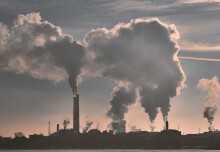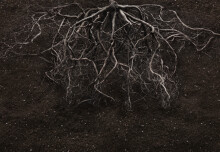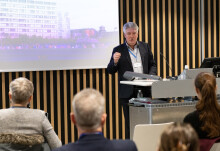

MODELLING AIR POLLUTION
New AI tool could transform the way we monitor and forecast air pollution
A new way of modelling air pollution can deliver more accurate and timely predictions.



New AI tool could transform the way we monitor and forecast air pollution
A new way of modelling air pollution can deliver more accurate and timely predictions.


Africa and South America a 'blindspot' in carbon removal research, study reveals
A review of research on carbon dioxide removal reveals a lack of evidence on its costs, impacts and benefits in Africa and South America.


Innovators of the future to compete in Venture Catalyst Challenge final
Five of Imperial’s most promising new startups will compete for a share of a £100,000 prize fund in the final of the Venture Catalyst Challenge 2024.


Feature
Companies pioneer 'materials as a service' using techniques created at Imperial
Innovative material suppliers are looking to retain ownership over the metals and chemicals they supply as a new sustainable business model takes off.


Largest study explores impact of dust on Tube staff
Researchers have carried out the largest study to date on the potential health impacts from
airborne dust on the London Underground.


Designing microbes to remove microplastics pollution
Imperial researchers propose using microbes and enzymes to remove microplastics from wastewater and sewage before they are turned into fertilizer.


Plant root sensors and flu research: News from Imperial
Here’s a batch of fresh news and announcements from across Imperial.


Two Imperial academics win significant European funding
Two Imperial physicists have won significant European funding to pursue their pioneering ideas.


Imperial experts join Hammersmith & Fulham partnership to tackle air pollution
Imperial researchers will partner with Hammersmith & Fulham Council and Imperial College Healthcare NHS Trust on local air quality research.


Handwashing a major source of pet pesticide pollution in UK rivers
A new study suggests that handwashing in the weeks after spot-on flea and tick treatments is the largest source of pet pesticide pollution in rivers.
 2
2